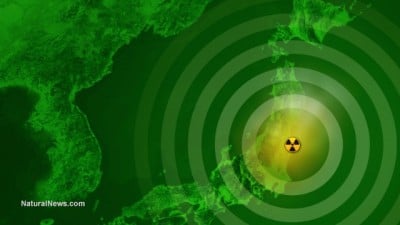
The environmental impacts of the 2011 Fukushima Daiichi nuclear disaster are already becoming apparent, according to a new analysis from Greenpeace Japan, and for humans and other living things in the region, there is “no end in sight” to the ecological fallout.
The report warns that these impacts—which include mutations in trees, DNA-damaged worms, and radiation-contaminated mountain watersheds—will last “decades to centuries.” The conclusion is culled from a large body of independent scientific research on impacted areas in the Fukushima region, as well as investigations by Greenpeace radiation specialists over the past five years.
“The government’s massive decontamination program will have almost no impact on reducing the ecological threat from the enormous amount of radiation from the Fukushima nuclear disaster,” said Kendra Ulrich, senior nuclear campaigner at Greenpeace Japan. “Already, over 9 million cubic meters of nuclear waste are scattered over at least 113,000 locations across Fukushima prefecture.”
According to Radiation Reloaded: Ecological Impacts of the Fukushima Daiichi Nuclear Accident 5 Years Later, studies have shown:
- High radiation concentrations in new leaves, and at least in the case of cedar, in pollen;
- apparent increases in growth mutations of fir trees with rising radiation levels;
- heritable mutations in pale blue grass butterfly populations and DNA-damaged worms in highly contaminated areas, as well as apparent reduced fertility in barn swallows;
- decreases in the abundance of 57 bird species with higher radiation levels over a four year study; and
- high levels of caesium contamination in commercially important freshwater fish; and radiological contamination of one of the most important ecosystems – coastal estuaries.
The report comes amid a push by the government of Japanese Prime Minister Shinzō Abe to resettle contaminated areas and also restart nuclear reactors in Japan that were shut down in the aftermath of the crisis.
…click on the above link to read the rest of the article…